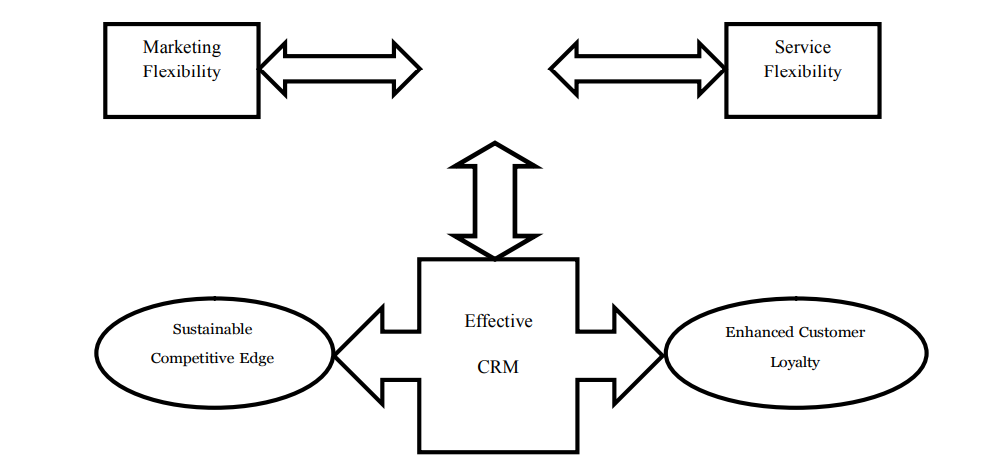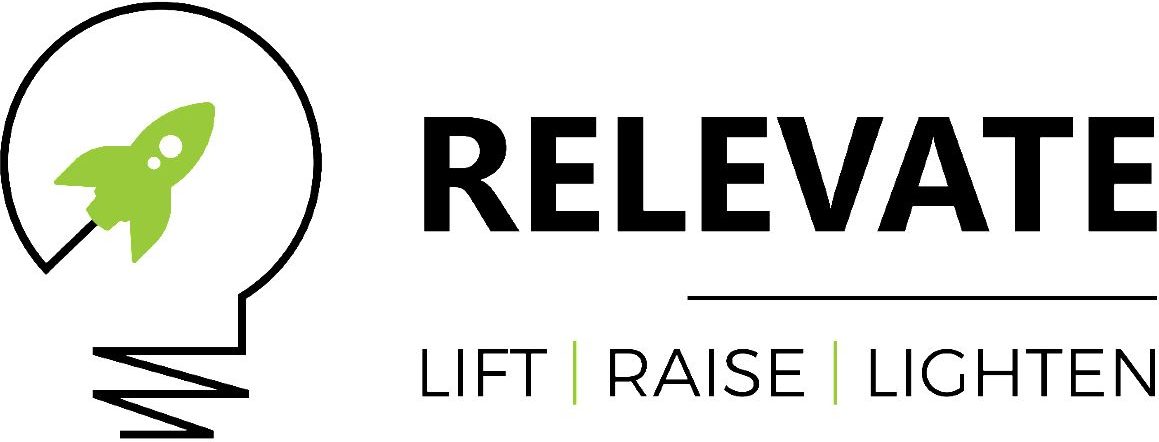Customer Relationship Management is a philosophy that sees marketing as a process of building long-term relationships with customers to keep them satisfied so they keep coming back” (Soloman, 2012) A CRM is one of the most powerful marketing tools in your arsenal and yet 70% of Australian Businesses don’t have a CRM and 95% if businesses that implement one experience benefits (Deloitte 2017, p.5). That means that the 30% of top performing businesses have one thing in common, they know who their customers are and they follow up with them to get the business. This report will evaluate the relationship elements of value of a CRM Implementation firm and propose a strategy that focuses on this B2B Element of Value as described by Alchemist et al (2018).
The Business Environment
The Australian computer and software retailing industry is characterised as having strong competition and fluctuating demand (Burgio-Ficca, 2019, p.1). However, the industry report includes a large range of consumer elements. Customer data is critical in understanding trends, anticipating demand and providing an excellent customer experience. “data has been likened to a new form of “currency” in business and a source of competitive advantage in the digital economy” (AICD, 2018).
A CRM implementation team can consist of an Accountant to assess what financial metrics need to be captured and reported on, a Marketer to design the customer experience, an IT professional to create and manage the infrastructure and integration, and a Change Management professional to manage the transition of staff onto the new system. “A firm’s ability to survive in a competitive market is to some extent based on its business relationships and their combined resourcefulness in creating sustainable competitive advantage” (Clements M.D. 2009, p.58). CRM systems allow firms to capture customer data, store conversation histories and allow one to one interaction with customers at scale.
Figure 1 – Creating a CRM strategy (Hutt Speh 2014, p.59).
Some CRM implementation firms offer a done-for-you software build cycle and then hand it over to the client. While these firms are often reasonably priced, have a quick turnaround and have a team of qualified technicians that can build technical solutions; they are often weak in the relational element as described by Alchemist et al (2018), particularly when implementing a technical product to a client with no experience in CRM. Other firms, such as Relevate, form deeper relationships with the client firm and seek to understand and evolve the process throughout the life of the project.
CRM Implementations involve a long process of understanding the business, its workflows and how its staff will accept the change. This can be an iterative process which needs to be flexible in nature. Flexibility in CRM implementation can improve staff adoption and create a new competitive advantage (Shalender & Yadav 2019, p.35-39). This is because the firm begins to understand new possibilities during the implementation process and can create new products, services, processes and workflows that were previously unattainable or unimaginable. The conceptual framework in Figure 2 shows that all parts of the business are in motion throughout the CRM implementation lifecycle and that the client firm that starts the implementation process can be very different from the when it finishes the implementation process.
Figure21 – CRM Flexibility Conceptual Framework (Shalender & Yadav 2019, p.39).
A CRM implementation done properly can be an expensive exercise and requires, guidance, assurance, training and redesigning of processes and culture. All of which are much easier if there is a strong relationship with the firm. If this is done progressively it can also create a culture of change and use of the CRM which enables the client to continue the development and evolution of the CRM even after the implementation team has completed its work.
Relevate clients are generally happier with a guided process and yield better results than the typical turnkey implementations. Clients that chose the prebuild solution save money but do not yield the same transformative results, do not have as high employee adoption and do not have the depth of collection and understanding of data.
Buyer Behaviour
A CRM system can be a large investment. While there are off the shelf solutions available this report will specifically focus on implementation services for larger CRM projects. Given the size of the investment and the value of the data that is being provided by the client firm, there is a significant level of trust placed in the implementation firm. Trust, while not a B2B Element of Value as described by Almquist et al. (2018), is embedded and implied within the elements of commitment, stability and cultural fit. Before a vendor is selected, there is a period of building trust. Taking the time to build and develop this trust can be costly and time consuming but can improve the quality and ease of implementation once the client firm has made the buying decision. Figure 3 shows how trust in the CRM Implementation firm, titled here as the Outsourced CRM Supplier can improve the outcome through better information sharing, access and needs interpretation.
Figure 3 – Model of Buyer Trust in CRM Implementations (Brockman, Park, & Morgan 2017, p.205).
Most successful firms have a unique selling proposition, a unique way of doing things and require a system that is flexible enough to meet their needs. Smaller firms typically to look for software tools that they can fit their business into, and larger firms look for software platforms that will fit their business. Larger firms have larger budgets and are more willing to invest in bespoke systems that will give them a competitive advantage but delivering services to these firms can often require a larger team.
Relevate’s target market is a business that wants to move beyond buying an off the shelf solution that is not configurable to one that they can customise to their business. These firms often have a marketing team, perhaps do not have a CRM or have a basic off the shelf platform, have a database of customer data consisting of more than 2000 records and are not required to conform to any specific industry standards like a finance broker, bank or insurance broker would as an example. The target market for Relevate is Small to Medium Business (SMBs). Companies do not purchase CRM systems frequently and implementing one is a significant undertaking however there is an opportunity for ongoing engagements.
New B2B Marketing Strategy
Figure 4 shows the relational elements of the B2B Elements of Value as described by Almquist et al. (2018). These elements will be used to shape the marketing strategy for Relevate.

Figure 4 – B2B Elements of Value – Relationship (Almquist et al 2018, p.76)
B2B Elements Of Value
1. Responsiveness
Firms want to have their questions answered and their issues resolved in a timely manner. Many software firms build a project and move on, they are not on hand to assist and help the customer. Software implementation firms commonly use the sprint methodology of project management, this requires a backlog of tasks to build up before tackling them in batches. While this is an effective way of using developer time it is not necessarily customer centric or solutions focussed. Higher response times lead to higher customer satisfaction. SMBs identified high quality, excellent customer service and having a unique good or service as the three main factors driving customers to purchase their goods or services (Deloitte 2017, p.11). While this is a statistic on consumer sales, the article by Almquist et al (2018) discusses how B2B buyers behave more and more like consumers.
2. Expertise
Many firms seek to breakdown work packages and attempt to get low cost providers to build each of these elements. This works to bring down cost but also disconnects the process from the customer. The intent of the feature or build needs to be connected to the customer and can often require a deep level of experience in the effect on the business. For example, a small security setting in a CRM build can make a big difference if the lack of that setting caused the company to be sued or fined for a data breach. As previously mentioned, a skilled implementation team can consist of team members with specialisations in Accounting, Marketing, IT, Change Management and others. Expertise gives the client firm confidence that their investment is a good one and that they are more likely to achieve the desired result with less risk.
3. Commitment
A proper CRM build is a large undertaking and requires a deep understanding and commitment to the result. Client firms also need to be committed to the outcome and need to play an active role in building toward the result. They need to commit to using the platform frequently, it cannot be a completely hands-off service that the CRM Implementation firm produces. Commitment is an integral part to a successful CRM Implementation.
Similarly, the client firm looks for an implementation firm that will guide them through the entire process, will stay in business long enough to see the project to completion and will be able to take the time to understand the complexities of the client firm. One of the main goals of Implementing a CRM is to increase the Life Time Value (LTV) of the customer. This effectively generates a form of commitment from the customer to the company. If the CRM Implementation firm is aligned in this goal of committing to the client firm in achieving this goal, then the client firm feels as though they have a partner in achieving this goal.
4. Stability
Because of the depth and duration of a CRM Implementation project and of the deep understanding of the client and their business, it is not suitable for the CRM Implementation industry to be highly competitive with tight margins, firms need to be profitable and stable. Firms that undercharge reduce the likelihood of being able to see a long project from start to finish without going broke.
5. Cultural Fit
There needs to be an alignment of culture, specifically in the area of best practice for CRM structure and use of customer data. The CRM Implementation firm should adhere to privacy and data laws and promote that culture the client firm. However, there are occasions when both the client firm and the implementation firm seek to exploit the data regardless of laws and ethics. CRM Implementation firms should set an example of excellent corporate culture as a way to show what the client firm can aspire to and as a way to demonstrate stability and expertise.
6. Product
As a CRM Implementation firm that recommends a range of platforms, it is easy to position Relevate as a firm that has selected the best products rather than being seen merely as a reseller or employee of one of the larger software companies. Promoting quality and flexible products that fit within certain budget and feature ranges allows Relevate to promote best in class platforms. Commonly software sellers and re-sellers try to prove that their solution will fit the business and they end up focussing on selling the product rather than solving the customers problem. Relevate aims to avoid this perception by having a repertoire of products that fit a range of businesses applications, meaning that the value provided is the implementation service and expertise, and not necessarily the software product being used.
7. Price
Some firms may have lower prices but they might take 3-5 times longer to do the work, this is usually due to a lack of expertise. Understanding the costs of implementing the CRM depends on the depth of implementation and customisation. One of the most significant costs is data cleaning. There can be significant amounts of data processing required to clean and map information into spreadsheets for subsequent upload into a CRM platform.
8. Promotion
Promoting a high priced and long duration project that has a significant impact on the business and has an element of risk requires a high degree of trust. Building relationships and gaining trust is an important part of marketing a CRM Implementation firm. Relevate’s expertise and cultural fit to the client firm means that these purchasing decisions also take a long period of time to be reached, this decision time extends with the size of the firm and requires several stakeholders in the client firm’s buying centre. Every buying centre interaction and decision is different in every company (Johnston & Bonoma 1981, p.146). This allows Relevate to prove its solution and demonstrate its expertise by effectively using a CRM to track deals, relationship phases and automate the process as far as reasonably possible. This also helps to demonstrate responsiveness.
Many CRM Implementation firms tend to become quite aggressive in their approach to booking meetings, sending follow up emails and running through ‘textbook’ sales processes when trying to sell their CRM. This is commonly done by single solution firms that are there to sell their software product. This often gives the perception that they do not have wider expertise and that they are solely trying to sell their widget. It also gives an air of desperation and often does not lead to a good cultural fit in many organisations.
Having a more relational approach, not following up quite as often, having professional conversations and remembering detailed facts about the business are an important part of the sales process for Relevate. Contrasting examples of this are a reseller for software company X calling, emailing and texting every day for 7 days after an initial web enquiry vs a professional consulting firm that guide you through the process but are sought after and not desperate for new business. Common forms of new business generation are word of mouth referrals and networking events.
9. Place
The solutions provided by the firm are cloud based and can be provided anywhere, however Relevate choses to meet people face to face where possible to increase the level of perceived expertise. This also increases the level of trust and allows Relevate to be evaluated differently to other organisations. By using the offices of client firms to do some of the work, Relevate is responsive and accessible to the client.
References
- Almquist, J, Cleghorn, J & Sherer, L, 2018 ‘The B2B Elements of Value: How to Measure – and Deliver – What Business Customers Want’, Harvard Business Review, March – April 2018, pp. 72–81.
- Australian Institute of Company Directors (AICD). 2018. ‘Trust in the digital economy’. 21 Sep 2018. Accessed 8 Dec 2019. https://aicd.companydirectors.com.au/advocacy/governance-leadership-centre/practice-of-governance/trust-in-the-digital-economy
- Brockman, BK, Park, JE & Morgan, RM 2017, ‘The Role of Buyer Trust in Outsourced CRM: Its Influence on Organizational Learning and Performance’, Journal of Business-to-Business Marketing, vol. 24, no. 3, pp. 201–219, viewed 8 December 2019, http://search.ebscohost.com.aib.idm.oclc.org/login.aspx?direct=true&db=bth&AN=125434770&site=ehost-live
- Burgio-Ficca , C. 2019. ‘Hard drive for sales: Strong competition and fluctuating demand lead to revenue volatility’. IBIS World Industry Report, Computer and Software Retailing in Australia July 2019.
- Clements M.D. 2009. ‘How Buyers and Sellers Value B2B Relationships: A Relationship Value Continuum for Internet Based Exchange’. Journal of Internet Business. Issue 6. p.56-80
- Deloitte Report 2017. Access Economics: Digital Opportunities for Today’s Small Business. https://www2.deloitte.com/content/dam/Deloitte/au/Documents/Economics/deloitte-au-economics-digital-opportunities-for-todays-small-business-salesforce-220317.pdf
- Hutt, MD & Speh, TW 2014, Business marketing management B2B, European, Middle East and Africa edition, Cengage, Hampshire (ISBN: 9781408093719 or 9781473707924)
- Johnston, WJ & Bonoma, TV 1981, ‘The Buying Center: Structure and Interaction Patterns’, Journal of Marketing, vol. 45, no. 3, pp. 143–156, viewed 9 December 2019, <http://search.ebscohost.com.aib.idm.oclc.org/login.aspx?direct=true&db=bth&AN=4997578&site=ehost-live>.
- Shalender, K & Yadav, RK 2019, ‘Effective CRM Adoption and Implementation: The Critical Role of Flexibility’, Optimization: Journal of Research in Management, vol. 11, no. 1, pp. 11–40, viewed 4 December 2019, <http://search.ebscohost.com.aib.idm.oclc.org/login.aspx?direct=true&db=bth&AN=138875828&site=ehost-live>.
- Soloman, M. R., 2012. Marketing: Real People Real Choices. 7 ed. Australia: Pearson.





